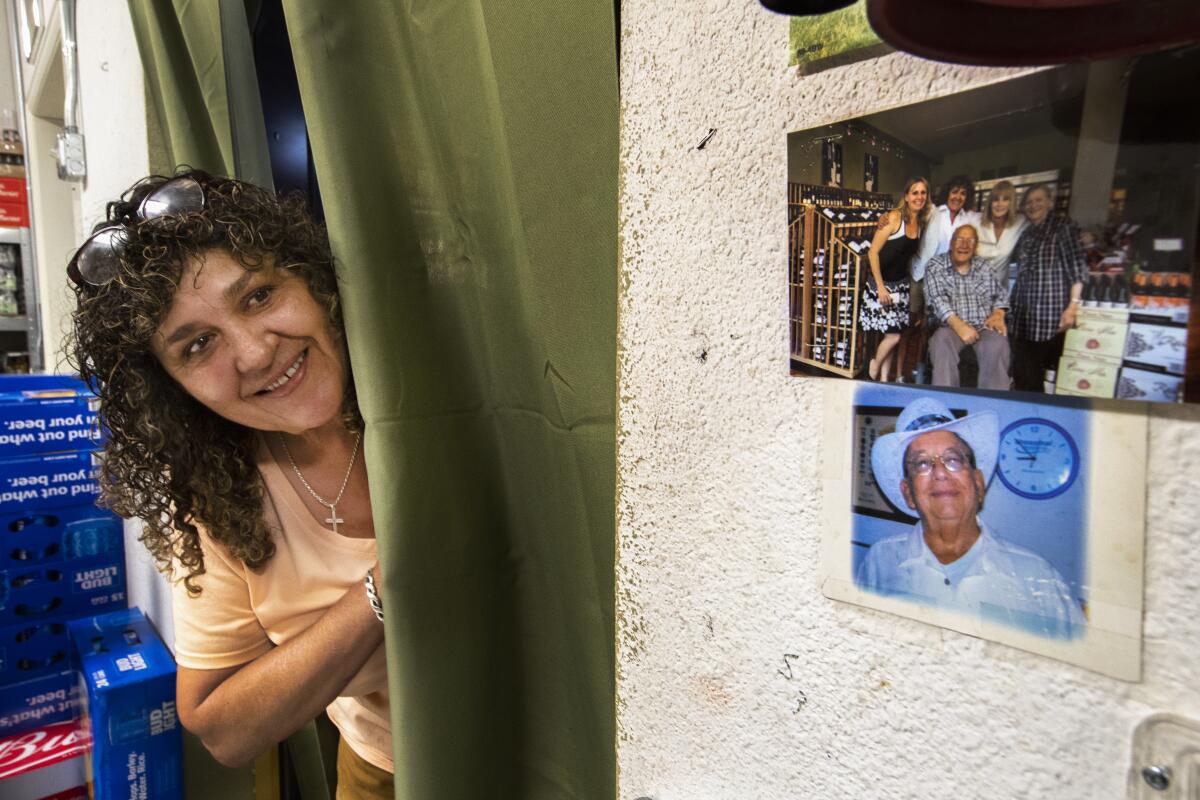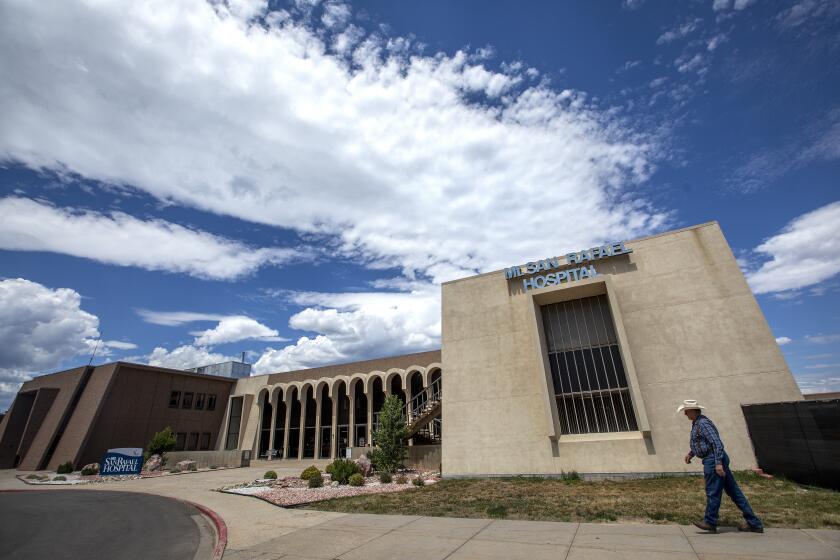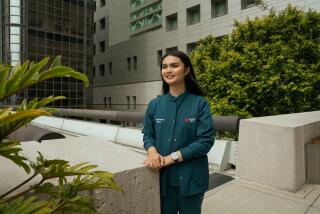How Stanley Biber, a pioneer in gender confirmation surgery, won over the Sisters of Charity

- Share via
TRINIDAD, Colo. — In 1969, when Dr. Stanley Biber first performed gender confirmation surgery on an acquaintance who’d sought his help, he created a whole new set of challenges for himself in Trinidad: How was he going to explain all this to the Sisters of Charity who were still helping run the small, rural hospital where he worked, and to the mostly Roman Catholic community that eventually would be hosting about three or four transgender medical pilgrims a week?
The original Mt. San Rafael Hospital was built by the Catholic order in 1889 and was run by those nuns for the next 79 years. The Sisters of Charity turned control of the hospital over to the Trinidad Area Health Assn. in December 1968, just before Biber began specializing in gender surgery but continued working as patient advocates and in other roles with the hospital for decades afterward.
The last nun affiliated with the hospital died in 1993.
At first, Biber kept the charts of his early transgender patients in the hospital administrator’s safe. Claudine Griggs, at the time a law-office secretary and part-time graduate student in Rancho Cucamonga who went to Biber for surgery in 1991, says she heard the surgeon concocted a cover story about his first patient being “an accident victim” to avoid raising questions.
But word got around, and more and more patients began traveling to Trinidad for surgery.
Secrets don’t stay secret for long in a town that size, especially with so many strangers wandering around. “Obviously when they started having a lot of ‘accidents,’ they knew something was going on,” Griggs says.
Dr. Stanley Biber’s pioneering work in gender confirmation surgery brought thousands to this small town. Why does he remain such an unknown figure?
Biber gradually became aware that “gossip” about him was circulating among the locals. “I’m pretty firm in my mind that we should admit that we are doing this type of surgery which is completely legal and completely necessary,” Biber told the local newspaper in 1973.
“There are certain types of these patients who have been taken advantage of for years by the tremendous money value, or price, that has been placed on the operation by certain groups in other areas. We don’t want to do that.”
The surgeon eventually leveled with his bosses, and then reached out to local religious and other community leaders to explain his compassion for the transgender patients, and the importance of withholding moral judgment about them.
He saw his patients simply as people in pain, and himself as having the power to relieve that pain. Because Biber was so respected in town, his reassurance was enough for most people. His decision to directly address local skeptics was, he once told a Denver reporter, “one of the smartest things I’ve ever done.”
By the time Griggs went to Trinidad for her surgery, she says Biber and the Mt. San Rafael staff were welcoming transgender patients in a way that affirmed their dignity and reassured the patients about the professionalism of the surgeon and the hospital.
“I couldn’t understand why the Sisters were looking over me while I was in the hospital and making sure transsexuals weren’t mistreated, and coming in to check on us,” Griggs recalls. “It never made sense to me. But I was grateful.”
More to Read
Sign up for Essential California
The most important California stories and recommendations in your inbox every morning.
You may occasionally receive promotional content from the Los Angeles Times.











